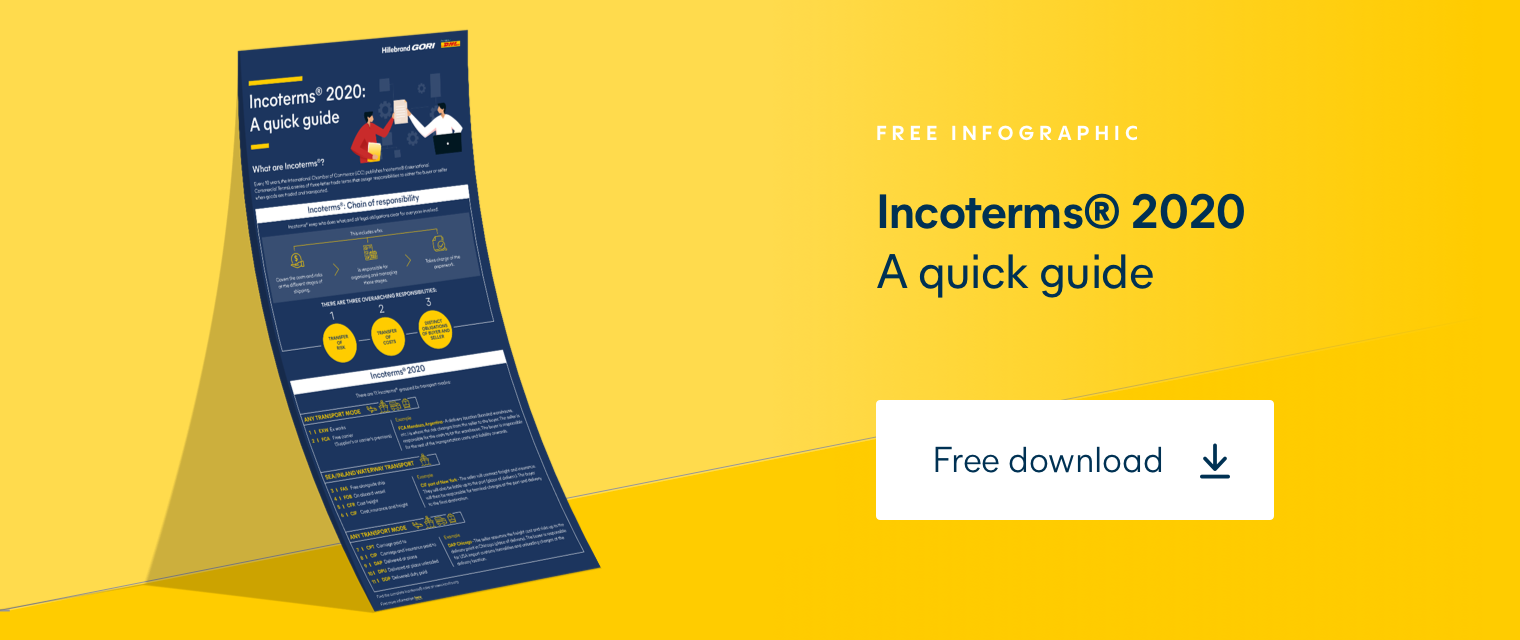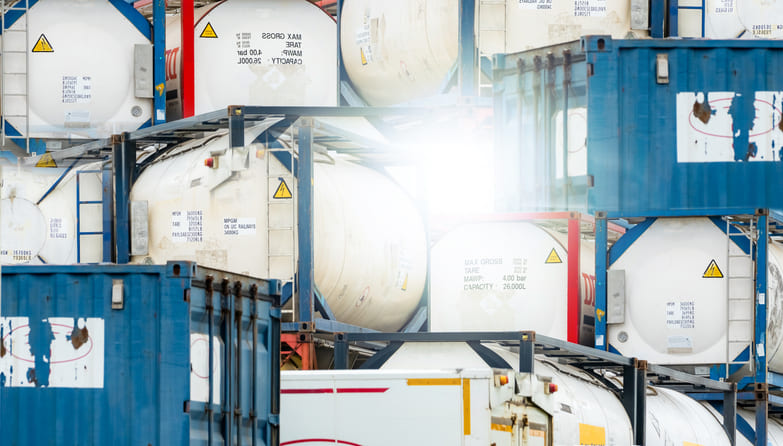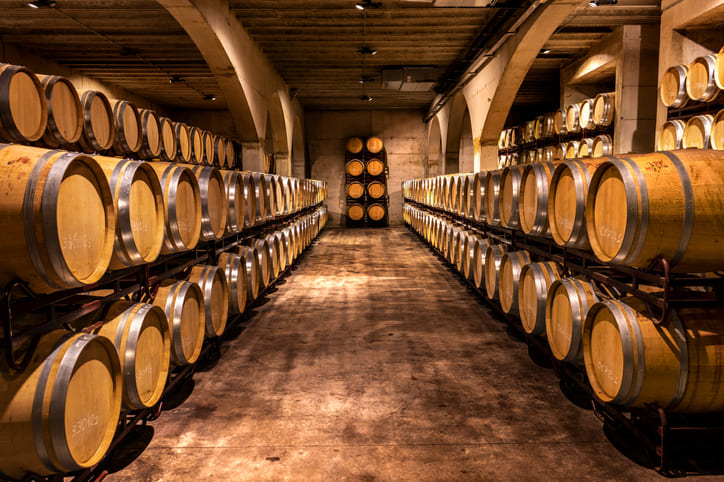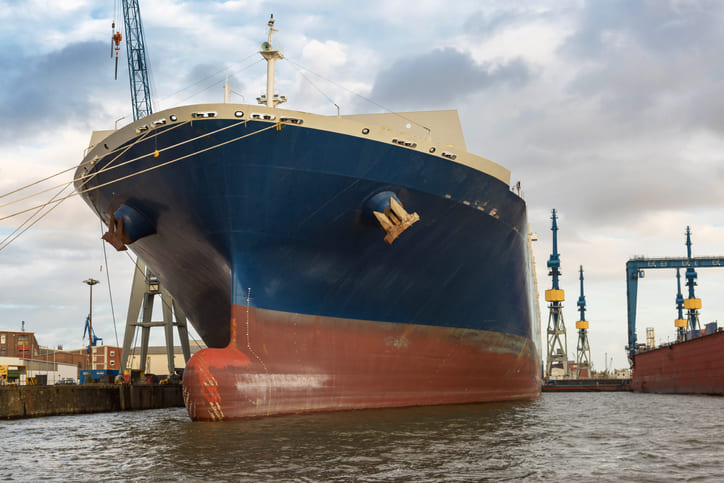Logistic terms you need to know to master your supply chain
In the beverage business, logistics involves so much more than simply moving cargo from A to B. Successfully harnessing the supply chain for wine, beer, and spirits requires keeping on top of a list of logistic terms and acronyms that can sometimes leave even the most experienced shippers scratching their heads from time to time. But don’t panic, if you’re wondering how to tell your lo-lo from your ro-ro, we’re here to help.
Let’s take a look at what some of the key logistic terms you should know and find out what they actually mean.
Key logistic terms
3PL and 4PL
3PL (third-party logistics) providers help companies to optimize their supply chains and save time and money by supplying procurement, warehouse management, transportation and other services. Engaging 3PL providers allows companies to concentrate on their core competencies. 4PL (Fourth-party logistics) providers, also known as lead logistics providers (LLPs) act as project managers for a company’s supply chain and a single point of contact for all supply chain needs.
BAF
A Bunker Adjustment Factor is a fee charged by sea freight carriers, per container or pallet, relating to fluctuating fuel prices. Freight rates usually include BAF or are listed as a separate charge on your quotation.
Blank Sailing
In logistic terms, a blank sailing happens when a carrier chooses to cancel a scheduled sailing or skip stopping at a particular port.
BOL (Bill of Lading)
A unique identification document for international cargo. A Bill of Lading, also called a waybill, provides carriers and customs officials with crucial information about the contents, origin, transport route, and final destination of a shipment. It is also a contract for the carriage of your beverages and acts as a receipt for freight services.
Bonded Warehouse
Companies can store wine, beer, or spirits at these facilities. Customs duties do not have to be paid on products stored in bonded warehouses until they are removed from the warehouse. These products are referred to as ‘under bond’ or ‘duty suspended’.
CIF
This is a commonly used Incoterm® (see below) used for sea freight. CIF stands for Cost, Insurance & Freight. The price the buyer pays for the wine also includes transportation and insurance up to the point it reaches the destination port.
Consignment
Beverages that are transported from a supplier to a buyer are sometimes called a consignment. Related logistic terms include consignor, the person who sends the wine, and consignee, the receiver or buyer.
Cross-Docking
Cross docking happens when cargo needs to be reworked at some stage of its journey. For example, a container might arrive at a port, holding cases of wine on pallets. However, the importer's warehouse might only be able to accept goods held in cages. So, after clearing customs the shipment might be taken to the freight forwarders warehouse to be deconsolidated and repacked onto cages, before being loaded onto a truck for final delivery to the importer.
Customs Brokerage
Every country operates under a different set of customs rules and regulations, so customs brokerage firms help exporters and importers their wine, beer, or spirits through customs more easily.
DDP
Delivered Duty Paid is one of the most widely used incoterms®. With DDP, transport, import clearance, taxes, and risk are the responsibility of the seller. The buyer pays an all-inclusive price.
Demurrage
This is a penalty charge that shipping lines levy on customers when containers are not collected on time.
EDI
Electronic Data Interchange is a system to allow the electronic exchange of business documents such as orders or invoices using a standard electronic format. EDI allows digital documents to be sent quickly along the supply chain, reducing costs, delays and errors. Unlike with email, documents sent by EDI can be automatically forwarded to the relevant application on a receiver’s computer and be processed right away.
FCL/LCL
These logistic terms stand for Full Container Load and Less-than-Container Load.
FCL is when a shipper pays to use an entire container for their own shipment. In LCL shipments, multiple shippers share the cost and space of a container and only pay for the space they use.
FEU
FEU (forty-foot equivalent unit) is a standard unit of measurement used in freight shipping. One 40-foot long container or two 20 foot containers equal one FEU.
Flexitank
A robust inflatable bag used for transporting liquids, such as wine, in bulk. Flexitanks turn a standard container into a bulk liquid shipping solution.
FOB
When sending beverages under a Free on Board incoterm® the risk is transferred to the buyer once a shipment is loaded onto a vessel.
General Average
This legal principle means that, in the event of an accident, owners of shipments upon that vessel must share the cost of any incurred losses. Your cargo insurance policy should cover any required financial contribution, but you should check.
GRI
The General Rate Increase is a price increase that ocean carriers have the right to charge if announced 30 days in advance.
HS Code
The Harmonized System Code is a code that classifies internationally-traded goods by contents or purpose. It allows customs authorities to identify which duties, if any, apply to your wine, beer, or spirits.
Incoterms® (International Commercial Terms)
Incoterms® are rules which identify who is legally responsible for organizing the international shipment of beverages from a seller to a buyer. They also spell out who assumes the risks and costs involved at each stage of the shipment’s journey, and when that responsibility is transferred from seller to buyer. Incoterms® condense complicated information and logistic terms into three-letter acronyms. For example, the incoterms® acronym DAP means ‘Delivered At Place’.
Intermodal Transportation
The movement of cargo from one destination to another using a combination of transport modes, but with the goods remaining in the same shipping container at each stage of the journey.
Lo-Lo (Lift on-lift off)
These logistic terms refer to vessels with onboard cranes. They can lift and handle cargo that might be too large for a container or a usual quayside crane.
Multimodal Logistics
This is similar to intermodal transportation in that multiple modes of transportation are used to move cargo, but the whole process is carried out by a single operator based on one contract or bill of lading. Multimodal logistics provide the customer, with simpler, faster and cheaper deliveries.
NVOCC
Non-Vessel Operating Common Carriers, like Hillebrand Gori, are ocean freight carriers or freight forwarders that don't operate their own vessels. Instead, they have partnerships with those that do – shipping lines.
Ro-Ro (Roll-on/roll-off)
These are logistic terms for situations where a vessel carries cargo that can be rolled on and off of it, for example by truck.
TEU
A TEU is a standard unit of measurement used in freight shipping, which refers to the volume in a 20-foot container. Two 20-foot containers (TEUs) equal one Forty-foot Equivalent Unit (FEU).
Telematics
Telematics are technological solutions that allow companies to remotely monitor data sent from their vehicles. Vehicle or fleet tracking Global Positioning System (GPS) is a common telematics technology. Telematics can give useful information such as the vehicle’s location, speed, and condition.
VGM
Verified Gross Mass is the total weight of the cargo, including the tare weight of the container. Shippers are required to provide VGM as part of the shipping instructions before it can be loaded onto a vessel.
Warehouse Management System
Software to control and manage the day-to-day operations of warehouses, such as tracking shipments and monitoring inventory levels.
Take a look at our glossary and our list of frequently asked questions to help you decipher more useful logistic terms. For your convenience, we have also included some of the more common incoterms® in the list above. However, it’s worth noting that while people sometimes mistakenly refer to incoterms® as if they are logistics terms, they are in fact quite distinct concepts. To save yourself any confusion, check out our useful guide to incoterms®.
Here at Hillebrand Gori we have the logistics expertise to deliver beverages with every drop perfectly preserved. Get in touch with us to discuss how we can transport your wine, beer, or spirits safely, affordably, and efficiently.





